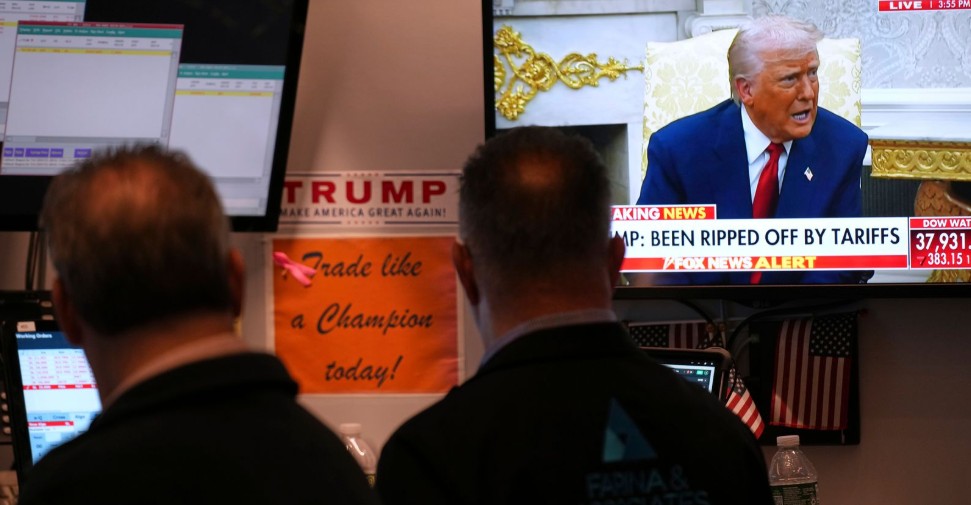WASHINGTON, D.C. — President Donald Trump spent billions of taxpayer dollars to bail out farmers when his first-term trade war hurt agricultural exports. But his new tariffs could be much worse for the agricultural community this time around.
After 10+ days of back and forth of applying some tariffs then retracting other, Trump now faces a global market meltdown. Today, Wednesday, April 9, 2025, he abruptly backed down on his tariffs on most nations for 90 days, but raised the tax rate on Chinese imports to 125 percent.
In efforts to rein in what some are calling market chaos and instability, lawmakers have introduced the Trade Review Act of 2025, bipartisan legislation that would restore congressional oversight over President Trump’s tariff taxes. The bill aims to bring stability and accountability to U.S. trade policy by reestablishing limits on the president’s ability to unilaterally impose tariffs without the approval of Congress.
U.S. Senator Amy Klobuchar (D-MN) joined Senators Maria Cantwell (D-WA) and Chuck Grassley (R-IA) in introducing the legislation that was cosponsored by Senators Jerry Moran (R-KS), Lisa Murkowski (R-AK), Mark Warner (D-VA), Mitch McConnell (R-KY), Michael Bennet (D-CO), Thom Tillis (R-NC), and Peter Welch (D-VT).
What you need to know…
- President Donald Trump has dramatically reversed course, dropping his country-specific tariffs down to a universal 10% rate for all trade partners except China.
- China’s tariff rate will jump to 125%, effective immediately, the White House says.
- White House advisors claim the flip flop was always the strategy, suggesting that the past week of massive tariffs that triggered huge market losses was all for show.
- Beijing has reciprocal 84% tariff rate on U.S. goods, effective April 10.
- The EU approved retaliatory tariffs on U.S. imports.
- China issued new travel warnings for its citizens about visiting the United States.
Farmers and ranchers have been Trump’s most loyal constituency and overwhelmingly backed him in the 2024 election. Now they could be among the groups hardest hit by his trade war, potentially forcing a political reckoning in red states as small and mid-sized farms and ranches struggle to stay afloat and big farms and ranches lose their export markets.
The nation’s largest farm groups — the American Farm Bureau Federation and National Farmers Union — have urged the Trump administration to quickly resolve trade disputes for the sake of farmers, ranchers and consumers.
National Farmers Union President Rob Larew in a statement said farmers and ranchers “will bear the brunt of this global trade war” and that Trump’s tariffs “create instability at the expense of our family farmers,” while also hurting the food system.
Still, some ag groups like the National Cattlemen’s Beef Association, said it is hoping the tariffs will force countries like Australia and Vietnam to agree to better trading terms. And dairy state lawmakers have expressed support for measured and targeted tariffs.
The Trade Review Act of 2025 follows Senate passage of Klobuchar’s bipartisan resolution with Senators Tim Kaine (D-VA) and Mark Warner (D-VA) to end President Trump’s tariff taxes on Canadian goods. It comes amid sharp economic fallout from the President’s new across-the-board tariff taxes on imports. Altogether, it’s estimated Trump’s tariff taxes will raise consumer costs by nearly $4,000 per household—representing the largest tax increase since 1968.
“President Trump’s tariff tax is raising costs for Americans and creating economic uncertainty. The erratic way these tariffs have been announced, un-announced, and re-announced has made it difficult for families and businesses to plan for the future,” said Klobuchar.
The Trade Review Act of 2025 reaffirms Congress’ authority over tariffs, as granted in Article I, Section 8 of the Constitution by placing the following limits on presidential tariff actions:
- The president must notify Congress within 48 hours of imposing or increasing a tariff on imported goods.
- The congressional notification must include the reasoning behind the tariff, and an analysis of the potential economic impact on American businesses and consumers.
- Any new tariff will expire after 60 days unless Congress passes a joint resolution of approval.
- Congress may terminate any imposed tariffs at any time through a joint resolution of disapproval.


